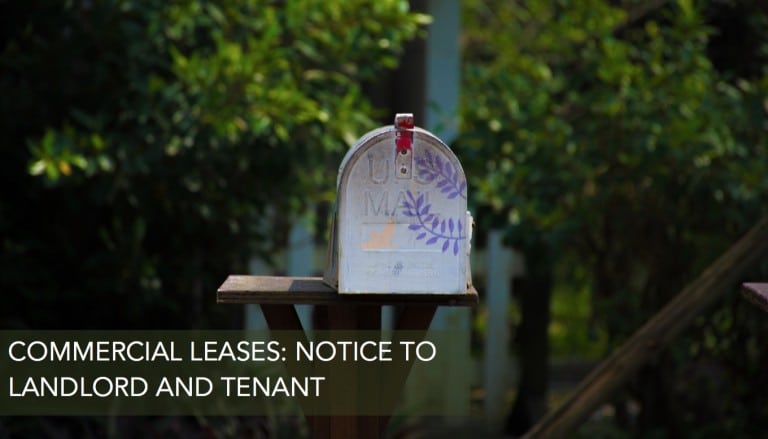

By default, a landlord seeking to evict a tenant must serve a notice that complies with California Code of Civil Procedure §§ 1161 and 1162. These notice requirements cannot be changed or waived in the context of a residential lease. However, parties to a commercial lease can use any form of service specifically agreed to, including email service. That said, it is important that the parties strictly comply with the terms of service specifically set forth in the commercial lease.
For most landlords, agreeing to as many means of service as possible is preferred. More often than not, the landlord will be the party giving notice and the benefit of multiple types of service will most often benefit the landlord. Where possible, commercial leases should include service by:
It is essential for the landlord to ensure the notice is delivered to the address stated in the lease. In a California case, the landlord served a tenant with a notice to quit, but at an address different than stated in the lease. The court found to the notice to be invalid, even though the tenant did not dispute receiving the notice to quit.
ALSO READ Competing Business - Orozco v. WPV San Jose, LLCThe court decided service at the agreed upon address in the lease was more important than actual notice. Therefore, it is crucial that landlord ensures their notices are served at the address stated in the lease (or, if the lease allows it, any address the tenant later requests notices be sent to).
Our attorneys have a great deal of experience dealing with various commercial lease disputes, and they offer commercial lease counseling services as well. To schedule a consultation with professional real estate attorney attorney in Los Angeles at Schorr Law, please do not hesitate to contact us by giving us a call at 310 954 1877, or by using our Contact Form.